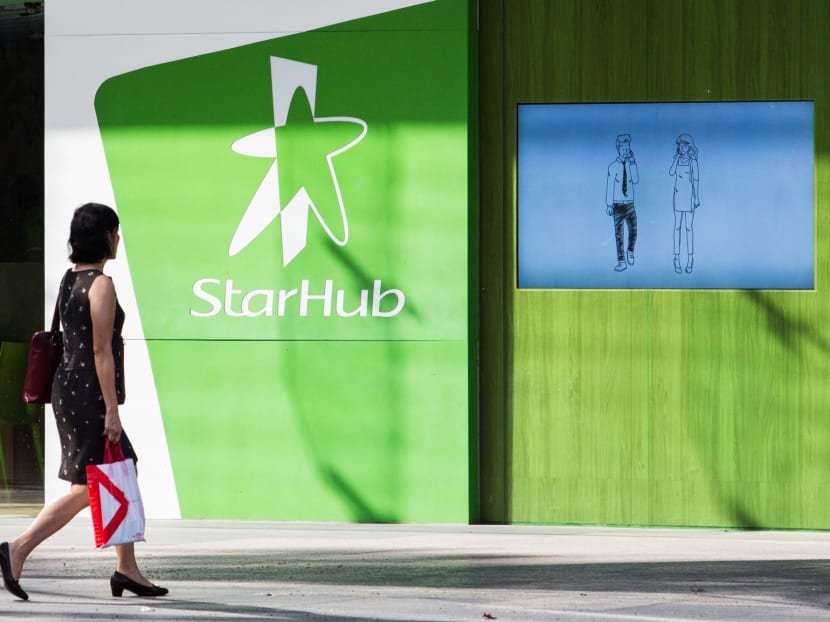Difficult ride for telcos ahead, StarHub retrenchments possibly a sign of things to come: Analysts
SINGAPORE — The telecommunications sector is in for a difficult ride, with the retrenchments by StarHub possibly a sign of things to come.

StarHub announced on Wednesday it would be laying off 300 employees as part of its S$25 million restructuring plans. The industry could be heading for consolidation in the next two to three years, according to one analyst.
SINGAPORE — The telecommunications sector is in for a difficult ride, with the retrenchments by StarHub possibly a sign of things to come.
Already facing declining earnings due to the emergence of several mobile virtual network operators (MVNOs) such as Circles.Life and MyRepublic, telecommunications analysts told TODAY that competition would intensify — especially with the entry of a fourth telco, TPG Telecom, at the end of this year.
StarHub announced on Wednesday (Oct 3) it would be laying off 300 employees as part of its S$25 million restructuring plans.
The industry could be heading for consolidation in the next two to three years, DBS equity analyst Sachin Mittal said.
With expectations of the rising adoption of SIM-card-only plans and an escalation of price wars after TPG Telecom enters the market, Mr Mittal expects the mobile industry to contract by 4 per cent every year until 2022. That would mean a lower revenue share for TPG Telecom when it enters the market.
Declaring that there is no longer a business case for TPG Telecom due to the rise of MVNOs in Singapore, he said that it could be difficult for the company to survive beyond three years after setting up shop in Singapore.
Alluding to market saturation, PhillipCapital research analyst Alvin Chia compared Singapore’s market of five million people to Australia’s population of 26 million people.
“Australia itself can’t support four telcos, because TPG and Vodafone merged... Singapore is already so competitive. This will be very hard for TPG to enter,” he said.
Besides stiff competition from MVNOs, existing telcos are also suffering declining earnings on the back of lower voice calls and roaming usage among mobile customers as they increasingly switch to data over traditional call services, or pick SIM-only plans as opposed to traditional mobile phone contracts, analysts said.
“Telcos have been overly aggressive in defending their market share to extent that they hurt themselves,” Mr Mittal said.
All three telcos — Singtel, StarHub and M1 — have been promoting their SIM-only plans and unlimited data plans. However, analysts said SIM-only plans tend to be less profitable than handset plans.
StarHub’s announcement comes just a week after Keppel Corporation and Singapore Press Holdings (SPH) said they wanted to buy out M1’s shares they do not currently own.
Asked whether M1 employees could face a similar fate as StarHub's, Mr Chia said he “will not rule out that possibility”, as everyone is “trying to cut costs and remain competitive”.
The rationale for the share buyout was to “drive business changes in M1 that will enable M1 to compete more effectively in the telecommunications industry”, said Keppel and SPH. They talked about how the launch of new MVNOs and the entry of TPG Telecom would intensify competition and pose risks to shareholder value if the status quo were to continue.
Analysts were not surprised by StarHub’s restructuring plans, although Mr Mittal said the magnitude of cost savings — S$210 million over three years — was much higher than he expected.
With StarHub’s earnings declining for the past two years, Mr Mittal said he would expect cost to have already been optimised.
Asked whether this means StarHub has not been operating efficiently, Mr Mittal said that the huge cost savings suggest that there is still a lot of room to manoeuvre.
Mr Chia, however, said the cost savings, though “substantial”, were within expectations. With about S$280 million spent on manpower-related costs annually, retrenching 300 of its workers would mean shaving off about S$30 million in costs every year.
Projecting a 20 per cent increase in annual earnings for 2019 and a 35 per cent increase for 2020, Mr Mittal raised his rating on StarHub from a “hold” to a “buy”, with a target price of S$2.45 on the back of the restructuring exercise.
Mr Chia expects the restructuring exercise to stabilise the telco's earnings in the next few years, given that revenue would be weaker due to greater competition from TPG Telecom.
Maintaining his call to “buy”, analyst Jonathan Koh from brokerage UOB Kay Hian revised StarHub’s target price from S$1.92 to S$2.10, saying the new management team led by new chief executive Peter Kaliaropoulos has improved the telco’s customer service.
The restructuring exercise, Mr Koh said, “reaffirms the belief that the new management team is more pro-active and capable in terms of execution”.
StarHub’s share price surged to its highest in almost four months on Thursday, closing 4.28 per cent higher at S$1.95 at the close of trading.
Sign up for TODAY's WhatsApp service. Click here:











